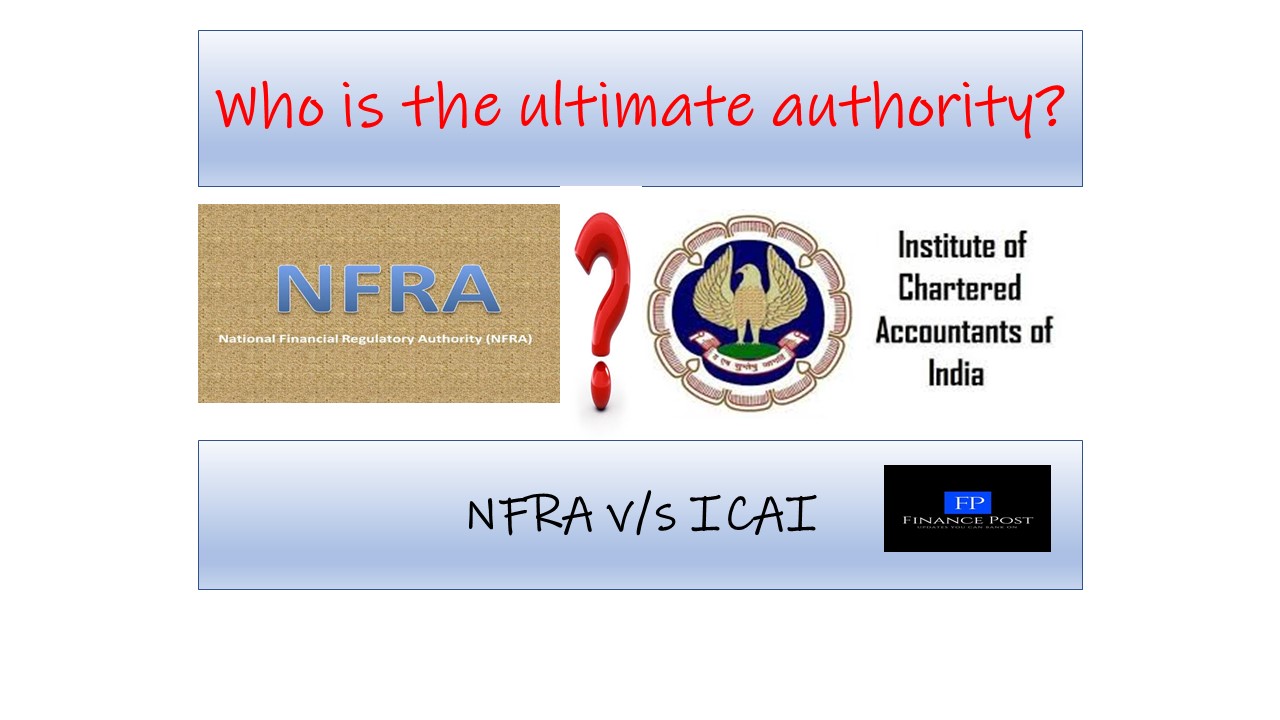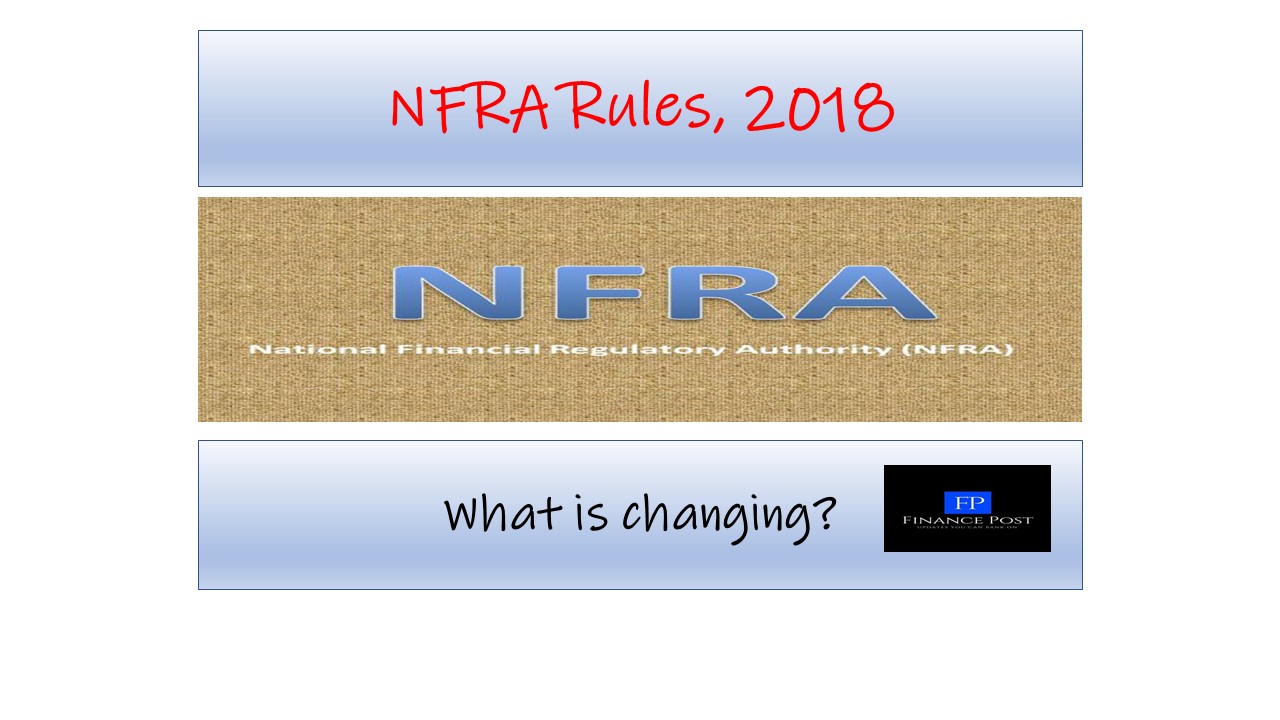
Last updated on May 9th, 2021 at 01:28 pm
NFRA or ICAI: Who is the ultimate authority?
On 13th November 2018, the Ministry of Corporate Affairs (MCA) notified “National Financial Reporting Authority (NFRA) Rules, 2018”. Before going into the details about the rules published, let’s understand what is NFRA and how is it different from ICAI. (Click here to read the rules notified in detail)
What is NFRA?
The idea for setting up NFRA or “National Financial Reporting Authority” was already introduced in the Companies Act, 2013. The idea was conceived on the background of various accounting related frauds detected in the Financial statements reported by companies like Enron and Satyam etc. The Union Cabinet approved the proposal for establishing the National Financial Reporting Authority (NFRA) in March 2018.
NFRA is a committee of members who will make recommendations to the Central Government on formulating high-quality accounting standards and auditing policies.
The companies or their auditors will have mandatorily use/adapt these accounting standards and auditing policies. The other responsibilities of NFRA as mentioned in the Companies Act include:
- Monitoring and enforcing compliance with accounting standards and auditing standards.
- Oversee the quality of service of the professionals especially auditors and suggest measures required to improve the quality of service.
Composition
NFRA consists of one Chairperson appointed by the Central Government, three full-time members, and one secretary. The chairperson appointed will have a definitive term and will be appointed from time to time. The person is someone with high experience and expertise in the field of Accountancy, audit, finance, and law. The government is yet to appoint a chairperson and members.
NFRA v/s ICAI
Prima facie, there appears to be a conflict in the roles and responsibilities of NFRA and ICAI; since the Institute of Chartered Accountants (ICAI) is also working with the said objectives. Hence, one can argue that there are two parallel organizations operating with the same objective. With the establishment of NFRA which will act as a watchdog for companies including auditors, gets an upper hand and as clarified in the rules published recently, NFRA gets the ultimate authority to impose a monetary penalty as well as debar an auditor or audit firm in case of misconduct.
The key differences between the roles and responsibilities of NFRA and ICAI are in the following areas:
Scope: As per the rules notified recently, the establishments that will be controlled by NFRA include the following:
- all listed companies; (securities can be listed in India or outside India)
- unlisted companies with a paid up capital of Rs 500 crore or more; or an annual turnover of Rs 1,000 crore or more; or outstanding loans, debentures and deposits of Rs 500 crore or more
- insurance companies,
- banking companies and
- companies engaged in the generation or supply of electricity
- large offshore subsidiaries and associates of the above companies provided their income or net worth exceeds 20 % of the income or net worth of the parent.
Authority: NFRA rules, gives authority to NFRA to protect the public interest and the interests of investors, creditors and others associated with companies. As specified in the Companies Act, the rules provide that the NFRA may direct auditors in improving audit quality. This was so far a sole responsibility of ICAI. With NFRA rules, there is a clear dilution of power rested with ICAI.
Penal Action against misconduct: NFRA has also been given wide powers of investigation including into professional misconduct of an auditor. The law states that once the action or investigation is initiated by NFRA; no other body corporate shall initiate or continue any proceedings against the same matter. This restricts ICAI’s power to act against the misconduct of its members/auditors.
Advisory role: NFRA advises the Central Government whereas ICAI will advise NFRA in creating high-quality accounting standards, etc.
Who is the ultimate authority?
Considering the wide scope and powers vested with NFRA, the powers entrusted with ICAI are diluted. From a listed or large companies perspective NFRA is an important body and they are required to comply with the norms laid by NFRA. However, ICAI will help in creating these rules and will govern small and unlisted companies as usual.
Finally, this kind of “Oversight-board” is in place in many countries and was also recommended in the Sarbanes Oxley Act; post “Enron scam”.
Related Posts
- How to do a transaction in Digital Rupee (CBDC-R)? – A Step by step Guide - 10/12/2022
- Can you rectify your 26AS? - 20/09/2022
- Tax implications on Cashback - 09/09/2022
Disclaimer: The above content is for general info purpose only and does not constitute professional advice. The author/ website will not be liable for any inaccurate / incomplete information and any reliance you place on the content is strictly at your risk.
Follow us on Social Media by clicking below
Follow @financepost_in
Informative, saved me a lot of time.
Thank you